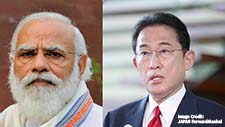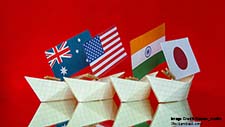Australia Speaks Plainly on the South China Sea
Elliot Brennan
They say actions speak louder than words. So maybe Australia’s invitation to Japan to take part in U.S.-Australian war games in July and the lack of an invitation for China was a good indication of Australia’s disapproval of China’s activity in the South China Sea. But if that message didn’t get across (Beijing said it didn’t mind), in the past week officials from Australia’s Department of Defence made it clear in their strongest statements yet on the disputes.
Related Publications
-
South Korea’s Indo-Pacific Strategy, Atmanirbhar Bharat, and the IPEF: Convergence and Commonality
For some time now, the existing multilateral networks such as those of the United Nations (UN) system have been largely ineffective in providing good global governance and helping create resilience, […]
-
Kishida’s New Era Realism in National Security and India Diplomacy
The Ukraine war and double threat from China and North Korea in Japan’s backyard have pushed Tokyo to update national security plans and step up India ties. On December 16, […]
-
Seoul’s Geopolitical Code on Quad: Imperative or Elective?
Abstract: Under the new government helmed by President Yoon Suk-yeol, South Korea (ROK) has displayed a clear tilt toward and a more open embrace of the Indo- Pacific concept. Interestingly, […]
-
Japan’s Historic Moment: Global Challenges Necessitate Policy Evolution
Abstract: As Japan’s power and importance in the regional and international domain continues to grow, this issue brief provides an analysis of the domestic and international threats that are challenging […]
-
Japan’s Stance on a United Korea: Ambivalence or Realpolitik?
Introduction: Northeast Asia is at a critical juncture amid the gross uncertainty and chaos brought upon by geopolitical forces not just in the region but globally too. A wide range […]




